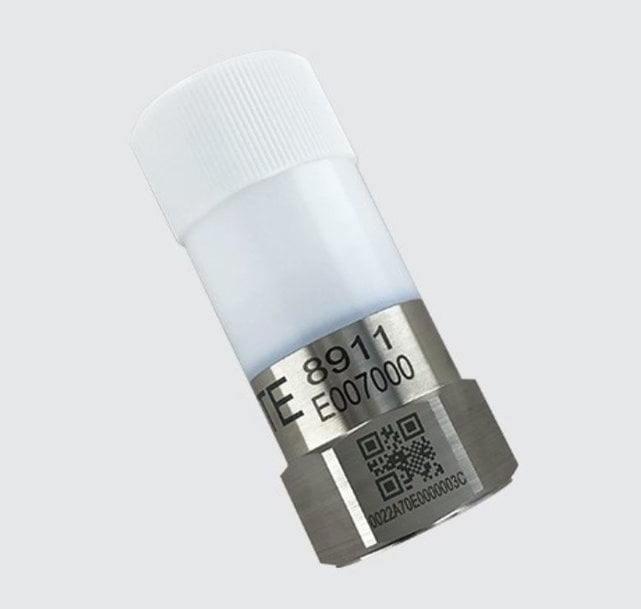electronics-journal.com
14
'20
Written on Modified on
TE Connectivity launches new 8911 Wireless Accelerometer
According to LoRaWAN specification with edge computing for condition monitoring minimizes downtime, maximizes availability and reduces installation costs.

Scalable, reliable and more compact wireless sensors for remote condition monitoring help companies get the most from their assets by minimizing downtime, maximizing availability and reducing installation costs. Further, enhanced condition monitoring systems are key to improving the uptime of machinery. To provide this level of performance in critical machinery in industrial applications, TE Connectivity, a world leader in connectivity and sensors, has designed the 8911 wireless accelerometer.
The 8911 is a compact, LoRaWAN wireless accelerometer with edge computing for condition monitoring. Key benefits of the 8911 wireless accelerometer include:
LoRaWAN Class A: The LoRaWAN specification is a low power, wide area networking protocol designed to wirelessly connect battery operated devices to the internet. This protocol provides longer transmission distance and is less susceptible to external signal interference. It also offers secure means of expanding condition-based maintenance into plant areas where the cost to install wired systems is prohibitive, making data available to existing process control and information systems. LoRaWAN can be implemented on a managed network or on a customer’s own private network.
Edge computing: The 8911 wireless accelerometer provides ambient temperature and calculates FFTs in the device. It transmits the relevant top eight peak frequencies and combines a sensor, data collector and a LoRaWAN radio into one compact, battery-operated device.
Compact: The 8911 wireless accelerometer is designed with a corrosion resistant stainless steel case and plastic cover measuring 1.25” hex x 3.1” height, the same as existing cable versions. Its mounting footprint and stud size are standard to enable fast installation on existing and new machinery.
Reliable: Robust signal preventing interference and drop out. The rugged stainless steel sensor housing with IP66 rated o-ring seal allows the sensor to perform well in harsh environments.
10-Year battery life: This sensor has up to 10 years of battery life based on a certain sampling interval. It uses a piezo-electric sensing element, which has the advantage of high bandwidth, superior measurement resolution and ultra-low power vs MEMS solutions, enabling longer battery life and enhanced machine failure detection.
“The 8911 wireless accelerometer combines a sensor, data collector, digital signal processor, and radio into one compact, battery-operated device that measures both vibration and temperature data,” said Bjorn Ryden, director of product management for TE’s sensors business. “We are confident that our customers will benefit from this product and be impressed by its ability to provide top performance in continuous health monitoring of critical industrial machinery.”
www.te.com

